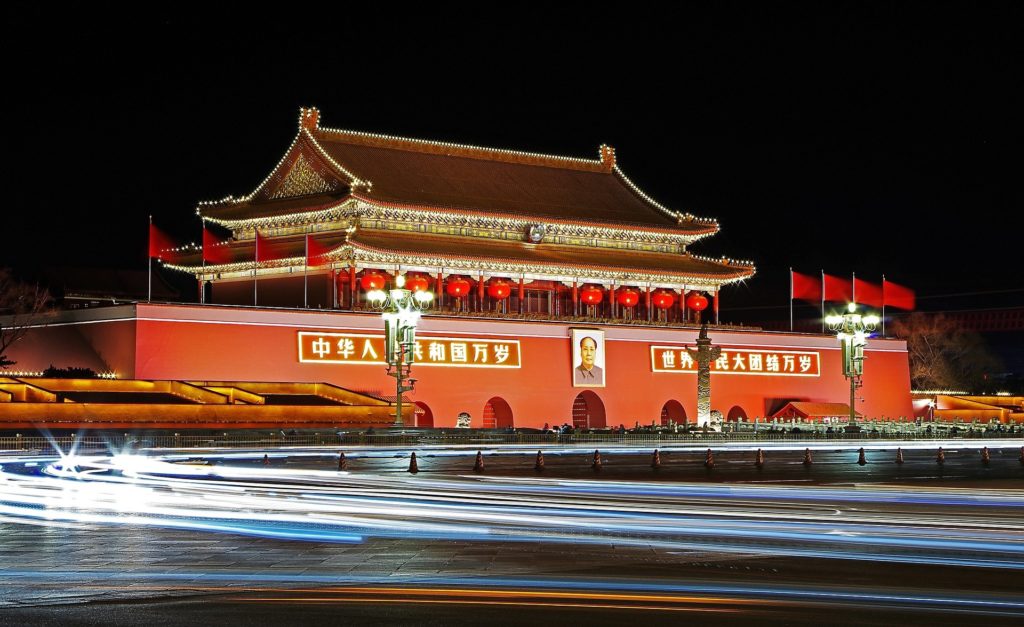The Peninsula
China Cuts Off Imports of North Korean Coal: Economic Impacts Depend on Pyongyang’s Reaction

By William Brown
Beijing’s Commerce Ministry surprised everyone on Friday, announcing a halt to imports of any coal from North Korea in 2017, a much deeper reduction than was called for by the November 30 UNSC resolution, which allows 7.5 million tons for the year, worth up to $401 million. Only Beijing knows the reasoning for its abrupt change in policy—it had been resisting sanctions that hurt North Korea’s economy at large—but presumably it was due to Pyongyang’s solid fuel missile test two weeks ago, the killing of Kim Jong Nam in Malaysia, last week, or even something discussed during Secretary of State Tillerson’s meeting with Chinese Foreign Minister, Wang Yi, also on Friday.
For years, China has argued in the Security Council against a shut off in North Korean coal exports, saying it would go beyond the specific intent and focus of the sanctions on the military and nuclear establishments and would harm the general economy, so it makes sense for us now to speculate just what impact this might have. Coal exports, all to China, earned about $1.2 billion in 2016, 45 percent of overall North Korea earnings from China. At second-half 2016 levels and prices, North Korea, without sanctions, would have earned well over $2 billion in 2017, as prices in China have soared in recent months. Reductions in earnings of even the November limits, let alone this complete cut-off swamp any other recent sanctions on Pyongyang, and come on top of the loss of Kaesong Industrial zone income last year and other sources of foreign income.
The impact on the economy could be devastating if Beijing indeed holds to this decision for the entire year, and Pyongyang’s economic planners don’t react well to what must come as a shock. If there are positive things to be said about the Kim regime so far they are that, unlike his father, he has been able to steady the market exchange rate and eliminate hyper- inflation, probably by allowing significantly more market activity, which has led to productivity increases and a relatively buoyant economy.
- Well worth watching in the next few weeks and months is what happens to the won/dollar exchange rate and the won price of rice as shown in the Daily NK website—and we wish higher priority could be made by the news service or others in presenting this data daily rather than at two-week intervals. If it is true that the market is taking hold in North Korea, and that people soon become aware of the Chinese actions, the won price of the dollar should rise significantly as dollars will be seen as increasingly scarce. And after that the price of rice measured in won also should rise. These prices could jerk upwards, moreover, if panic should ensue.
- If the prices do not change, we can only guess that the spread of information in North Korea is much less than we think, that there is something wrong with the data collection, that the government is taking extraordinary measures to support the currency, for instance by selling whatever dollars its holds and buying won, or lastly, and most worrisome, that new restrictions on holding and trading dollars are coming into play reminiscent of the botched currency revaluation of 2009. Any of these would be bad news for the economy and ultimately, I suspect, for social stability.
A better choice by Pyongyang would be to continue the liberalization of finance but this will take bravery on the part of the officials in charge, given the markets are likely to be pushing against them with a high potential for the return of hyperinflation. The government, while virtually without credit, internationally, has huge real resources that it could liquidate to capture dollars currently circulating within the economy, and use these to support the won. Speeding privatization, moreover, improves productivity and could increase exports of non-sanctioned goods, for instance textiles, that in the longer term hold more promise than coal.
The more likely alternative may be to resort to the tired but true juche policy, cutting back on imports and trying to regulate prices and wages, returning as much as it can to the command or rationed system to prevent inflation and a loss of people’s living standards. Stalinist planners, in fact, might even like the new sanctions, given they will have a better chance to control coal production and direct it toward domestic use, especially to the stretched electric power sector. But re-regulation of the economy will expose it to all the inefficiencies of the past, even to a collapse of consumer spending and eventual ruin.
Beijing probably had good reasons for not cutting off coal imports so completely in November, and we should emphasize that the new cut is time limited, only through 2017. We shall soon find out if those worries about the economy and social stability were on the mark, or not, and if Beijing can effectively use this powerful sanction to change North Korean policy. Even more intriguing is the potential for China to ultimately use its crude oil card—virtually all petroleum used by North Korea comes free of charge from Daqing oilfield—an issue never openly discussed by Chinese officials except to say they do not want to destroy the North Korean economy by turning off those valves.
William Brown is an Adjunct Professor at the Georgetown University School of Foreign Service and a Non-Resident Fellow at the Korea Economic Institute of America. The views expressed here are the author’s alone.
